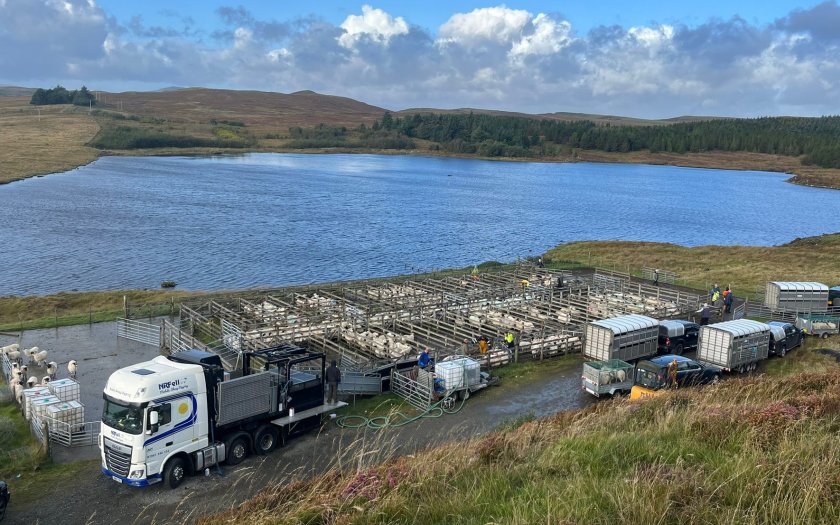
Crofters from the Outer Hebrides keen to control livestock disease on their island have visited Shetland to learn about an important scheme targeting diseases, including sheep scab.
Farmers from Lewis and Harris islands visited the Shetland Animal Health Scheme to see how the scheme works and to meet key personnel.
It was set up to help manage biosecurity around imported livestock to protect sheep health, including keeping it free of sheep scab, one of the most contagious endemic diseases affecting UK sheep.
The scheme includes veterinary surveillance and testing of all animals coming onto the island, as well as community sheep dipping facilities.
It is hoped that aspects of it could be adopted on Lewis and Harris, which hosts an estimated 30-35,000 sheep, and potentially also on other islands and rural communities.
The disease affects about 10-15% of farmers in the UK, with 8,000-10,000 outbreaks a year, costing an estimated £80,000 £200,000 million in lost production and control measures.
Dr Claire Hardy, a James Hutton researcher who led the visit, said the enthusiasm and passion of the Shetland stakeholders to control disease on their Island was clear to see.
“Sheep scab hasn’t gone away, we’re seeing it occurring throughout Scotland and tackling it is very much about working together, which is why this visit is so important.
"The positive vibe and offers of collaboration for the future will help the Lewis and Harris islanders to build on current sheep scab interventions and move forward on disease control for Lewis and Harris.”
Lewis and Harris Sheep Producers Association chair, Donald MacKinnon, said getting on top of sheep scab and other diseases had obvious benefits for welfare and profitability of flocks.
"The single point of entry to Shetland provides a significant advantage over our three ports in Lewis and Harris but we still have an opportunity to try to implement a system that suits our situation.
"We were also interested to hear about the premium that it puts on stock from Shetland heading to the mainland.
“We left Shetland buzzing with ideas that we could take home and try out. One of our big challenges, that Shetland doesn’t have, is hoggs returning from wintering on the mainland."
Hilary Burgess, who is the Shetland Island Council's veterinary advisor, said the visitors were not daunted by 50mph winds and freezing rain while viewing the facilities.
They also had a chance to talk with Shetland farmers and crofters about use of the community dipper and their experiences and plans for control of sheep scab.
“We hope that this will be the beginning of more joint working and co-operation on sheep scab control between farmers and crofters on Shetland, and Lewis and Harris,” she said.
"We are all working with the same aim to control sheep scab in our flocks and isles, and to produce quality clean sheep - so it makes sense to work together to get the best results.”
The scheme is part of a collaborative project with the Scottish government’s Centre of Expertise on Animal Disease Outbreaks (EPIC).
